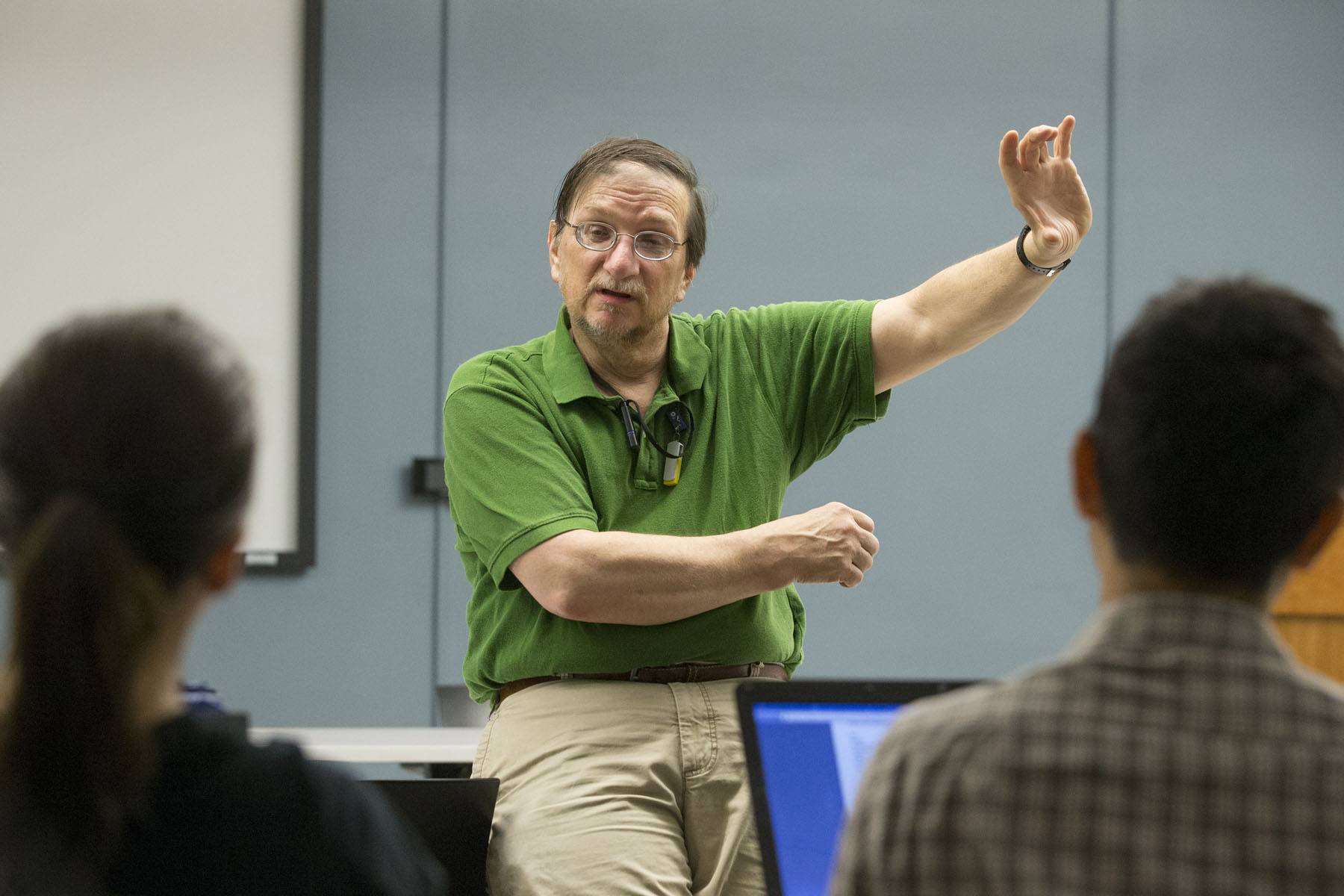The ocean propels our weather patterns, fuels our diets and produces most of the oxygen we breathe. It’s the most dominant feature on our planet, but our understanding of the ocean is often limited to personal experiences, and even more so, Hollywood.
Students in a University of Virginia summer course, “The Sea on the Screen,” taught by Stephen A. Macko, a professor of environmental sciences in the College of Arts & Sciences, are learning how silver screen portrayals of the ocean stack up against scientific knowledge.
“It occurred to me that much of our perception of the ocean is really coming from the media,” Macko said. “The class asks, ‘Is this an accurate representation? What is the image that the American people are getting of the ocean?’”
During class sessions, Macko lectures on a topic in oceanography, then shows clips from documentaries and feature films involving the topic. Documentaries such as BBC’s “The Blue Planet” series and National Geographic’s “Into the Deep” pair with major motion pictures like “Moby Dick,” “Master and Commander” and “The Perfect Storm.”
The juxtaposition of films allows students to compare the reality of the ocean to the way the public perceives it.
“It’s a very unique way to teach, and I think it’s getting the job done,” said Darius Smith, an economics and environmental sciences major in the College. “The class makes you think about how the ocean is represented. It’s been great in showing different aspects of the ocean, viewpoints, and how they all relate to each other.”
Students watch a significant portion of the documentaries and movies during the class, but they are encouraged to take the films home and watch the full work. They read supplementary articles on the topic and write critiques of the films for homework, and they discuss the accuracy of the films in class the next day.
In a review of “The Abyss,” James Cameron’s 1989 adventure film about a lost submarine crew, students discussed how the movie focuses on the “aliens” at the bottom of the ocean instead of what should be the more immediate danger: the crew is facing high atmospheric pressure at the ocean floor, and they will quickly run out of air supply. Science fiction distracts from reality for viewers, and the ocean serves as more of a backdrop for the plot than an influential character.
“It’s interesting that we’re watching everyday movies,” Smith said. “Having the lecture along with the movies makes the [lecture] concepts easier to understand and more engaging.”
In addition to the deep sea, the class includes sessions on sharks, the whaling industry and oceanic policy.
In a lecture titled “The Bountiful Sea,” Macko discussed the ocean’s potential to support life. By measuring the phytoplankton productivity in an area of the ocean, scientists can calculate the population of fish that the space can sustain, as well as how many fish can be caught without permanently damaging the population.
“Since 1985, we’ve reached a maximum yield for the ocean,” Macko told the class. “Some scientists believe that it’s been overfished, and that we’re now in decline – we’ll never be able to catch as many fish again.”
The accompanying documentary, “End of the Line,” exposed the impact of overfishing in oceans. Scientists have found that portions of the global fish population have decreased by over 90 percent in the past half-century. Since 1980, worldwide fisheries report catching fewer than three fish for every 100 hooks thrown into the ocean.
After the documentary, students were assigned “The Perfect Storm,” a film involving commercial fishing, and an episode of “The Deadliest Catch,” a reality TV series about Alaskan crab fishermen.
“Now when I see these movies, I do really think of how the science applies to them,” Caitlin Howard, a rising third-year anthropology major, said.
For their final project, students will make their own short documentaries on an oceanic issue. “With all these films you watch, you have to think, what’s the challenge?” Macko said. “I want them to think about what goes in to a documentary.”
— by Lauren Jones
Media Contact
Article Information
June 10, 2013
/content/summer-session-2013-students-study-silver-screen-and-deep-blue-sea

